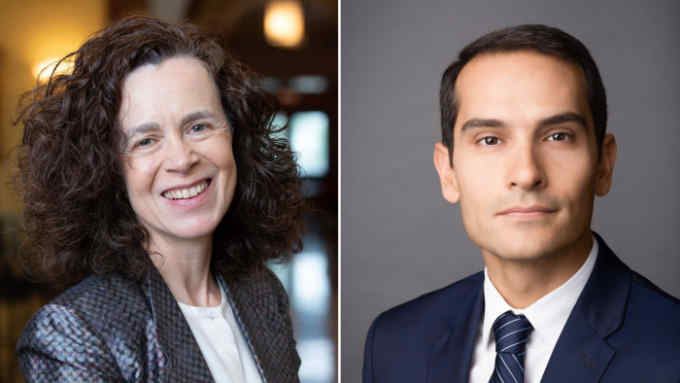Curricula must reflect the age of social responsibility

Roula Khalaf, Editor of the FT, selects her favourite stories in this weekly newsletter.
The writer is the founder and chief executive of Acumen, a non-profit impact investment fund
Climate catastrophes, war, and political and economic upheaval: in a world of uncertainty, students and emerging leaders are seeking new frameworks and ways to reimagine our broken systems.
Business schools need to reinvent their curricula and philosophies to reflect the needs of these pioneering students, who are using the tools of business in fresh ways to tackle problems.
I have led Acumen, an organisation that invests in entrepreneurs focused on helping to end poverty, for more than 20 years. These are entrepreneurs seeking to solve major problems of our time. They have greater insight into the world’s machinations than any previous generation, and are demanding business models focused on people and planet, rooted in inclusion and respect.
These individuals are unwavering in their belief that businesses must adapt to changing views of capitalism. While each has a unique vision, they all agree on the need for more talent and for skills that, too often, are not taught in traditional business school programmes. When Acumen decides whether to invest in an entrepreneur or hire an employee, we don’t look for a specific diploma, but rather we focus on demonstrated character, relevant experience, moral imagination, deep curiosity, a willingness to listen and adapt to failures, and resilience.
It is time for MBA courses in particular to give emerging leaders the guidance they need for a changing world. This includes sustainable capitalism and a deeper understanding of how complex systems work. Too many professors are still wedded to shareholder primacy, rather than providing tools to more fully integrate social value and ethics into the way we do business.
What if earning an MBA were a chance to apply the tools of business to the toughest problems in surprising, effective ways? Imagine what could change, especially for the poorest communities, if students were encouraged to explore what is possible when business models place as much importance on social and environmental impact as financial returns.
We are starting to see real innovation, often from institutions in emerging economies. In Pakistan, for instance, Lahore University of Management Sciences not only ensures low-income Pakistanis can attend but has a programme in which students spend time living in local villages to gain an intimate understanding of their country and the challenges facing its poor.
Developing world business schools could also provide powerful case studies enabling emerging leaders (no matter where they study) to grapple with current realities. Rarely do business schools integrate moral decisions facing managers in their case studies — and this, too, needs changing, as today’s managers must hold opposing values such as profit and purpose.
Changing the world starts by changing ourselves. Schools could do so much more in recognising that business practice must be paired with deep inner knowledge and personal growth. They could offer analyses on how to partner across lines of difference and integrate purpose in ways that translate into action.
Acumen has seen how much entrepreneurs rely on their peers to support — and challenge — them. This led us to create Acumen Academy, which offers skills, tools, and training for the business of change. With more than a million registrations, we’ve seen a generation yearning to shift our thinking to connection rather than consumerism; purpose rather than profits; sustainability rather than selfishness. And they are looking for the tools to do it.
Business schools could, and should, be responding to this yearning and, more importantly, pushing the frontiers for the new business and role models an interdependent world requires.
We can no longer ignore the fact that what students value about business is changing. These shifts are seismic. This new generation of students and entrepreneurs is clamouring to become socially responsible leaders, building companies on their own terms and, in turn, reshaping the systems that govern our lives. Business schools must catch up.
See the winners of our second annual Responsible Business Education Awards on January 16

Comments